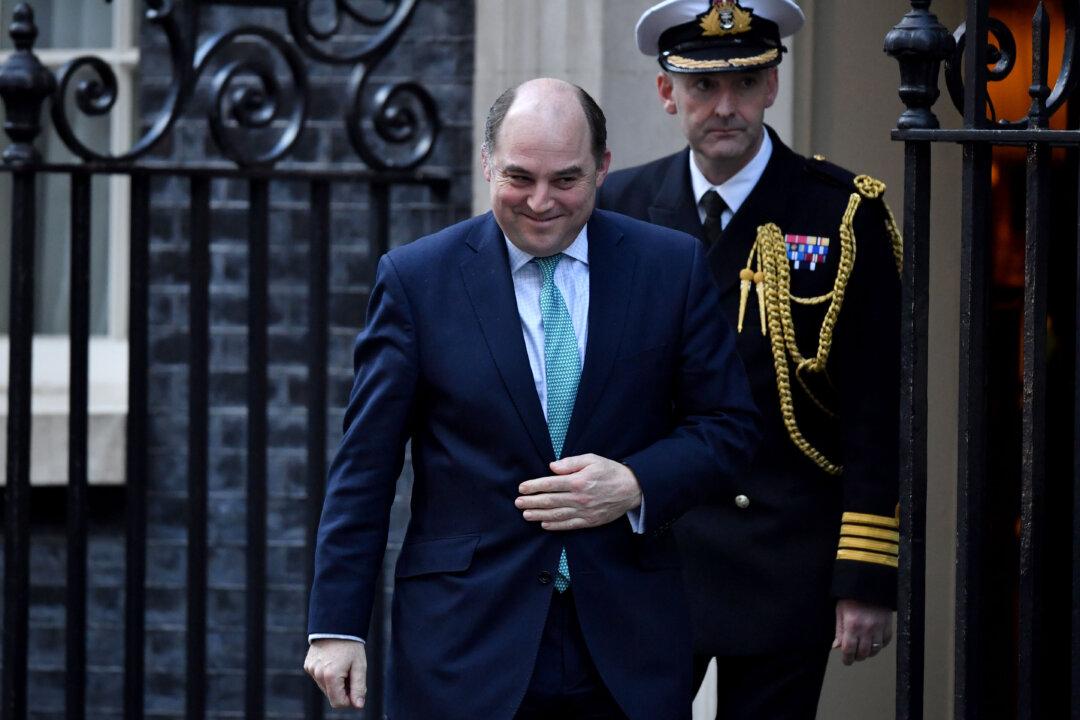Britain’s defense secretary said that by deepening its existing Five Eyes intelligence alliance and seeking to partner with other Asian countries, it would “send a message to China.”
That’s according to Ben Wallace, Britain’s defense secretary in conversation with ConservativeHome as part of the Conservative party’s annual conference, which ends on Oct. 6.





